What began as a simple idea has evolved into a groundbreaking journey that sheds light on the voices of Suriname’s indigenous peoples.
From November 2024 to May 2025, the project “Amplifying Rural and Indigenous Youth Voices on Climate Justice in the Caribbean” brought the struggles and resilience of the Lokono people, also known as the Arawaks of Suriname, to the forefront. Coordinated by Young People for Action on Climate Change in Jamaica (YPACCJA) and led locally by Nuravni S. Sallons, the initiative has resulted in the very first documentary dedicated to the Lokono community and their perspectives on climate justice.
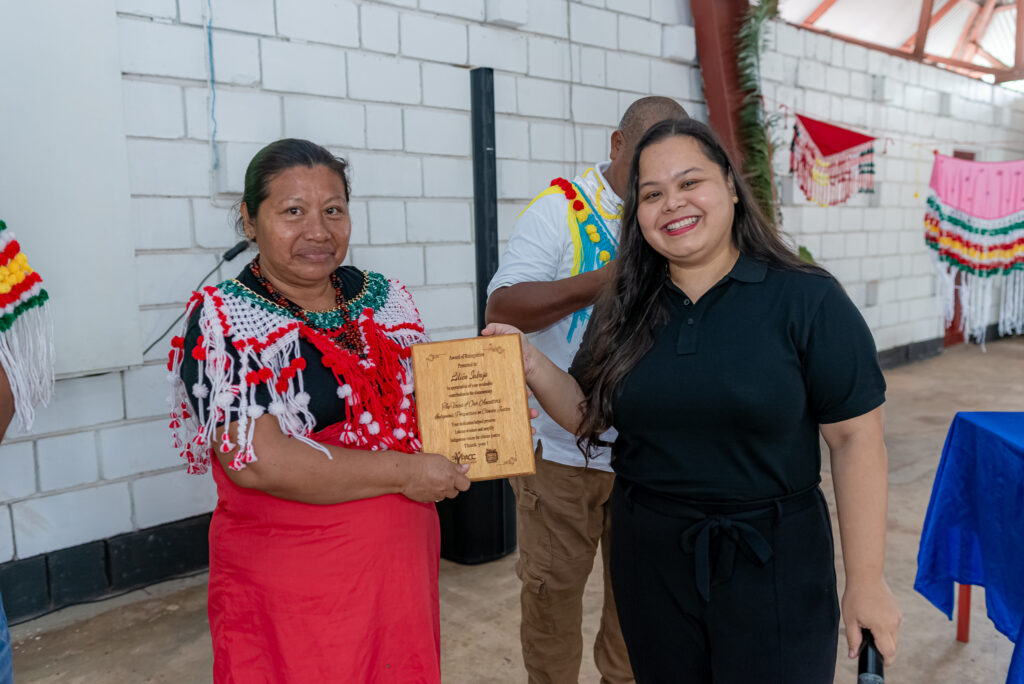
A question that sparked a journey
After years of observing the hardships Indigenous peoples face in Suriname, one pressing question arose:
Why does this keep happening, generation after generation?
The search for answers became the foundation of a three-phase journey:
- Phase 1 launched a social media campaign that highlighted Lokono culture, their deep connection to nature, and the systemic challenges they face under climate change.
- Phase 2 focused on preserving knowledge: from pre- and post-colonial history to climate impacts, language, clothing, spirituality, and traditions. These stories came together in a moving documentary: The Voices of our Ancestors – Indigenous Perspectives on Climate Justice in Suriname.
- Phase 3 culminated in Matta village, where community members gathered to watch the documentary and take part in discussions on land rights, food security, cultural preservation, and the future of the Lokono. The day ended with a traditional pepre watra lunch, shared in unity.
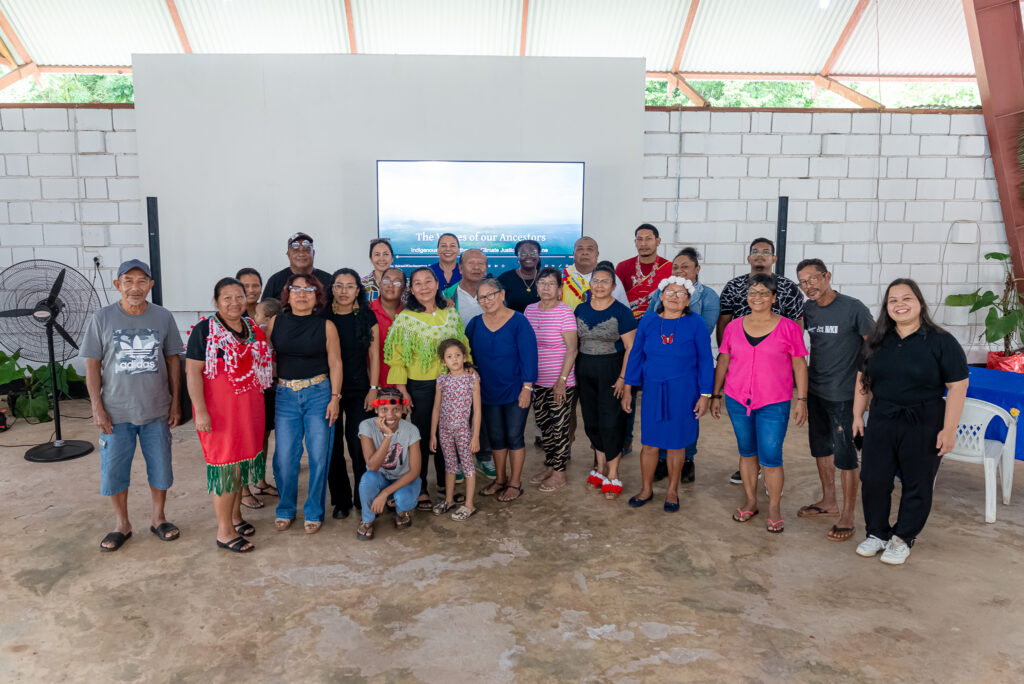
Challenges and trust
The process was not easy. Knowledge within the community is scarce and scattered, making documentation a vital first step. Too often, valuable insights have been taken from Indigenous villages without recognition or giving back, leaving behind a sense of disappointment. We are grateful that this project took the path of mutual respect, where transparency and reciprocity were at its heart. “It’s important to respect the community and contribute back,” Sallons explained. “The Lokono Community was very warm and welcoming, which made the documentary a success, and we deeply appreciate their openness and hospitality.”
Working with Indigenous communities is, therefore, a responsibility that requires care and respect. It is essential to approach these collaborations with humility and fairness. When engaging with communities that carry generations of wisdom, we must honour their openness, share the outcomes, and contribute in return.
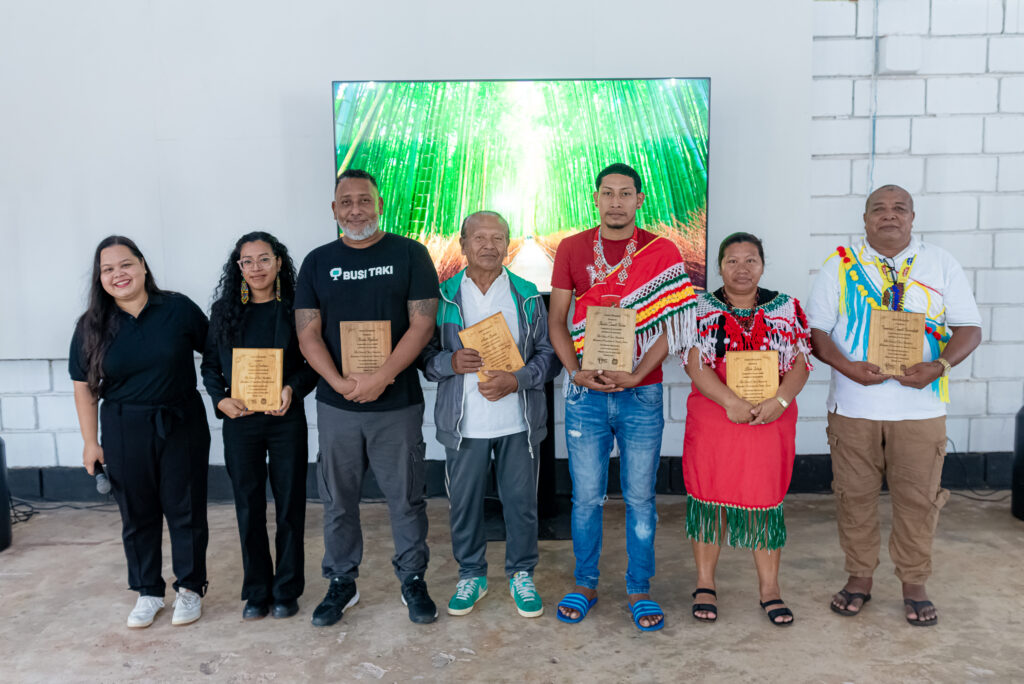
Why it matters
The Lokono are among the first nations of Suriname and hold generations of knowledge about biodiversity, ecosystems, and nature-based solutions. In the context of today’s climate and environmental crises, their insights are not just relevant; they are essential.
This documentary marks the first of its kind for the Lokono community in Suriname. It sets a precedent for future initiatives that honour and preserve Indigenous wisdom. By documenting, writing, and archiving their knowledge, we ensure it is never lost and always accessible for future generations.
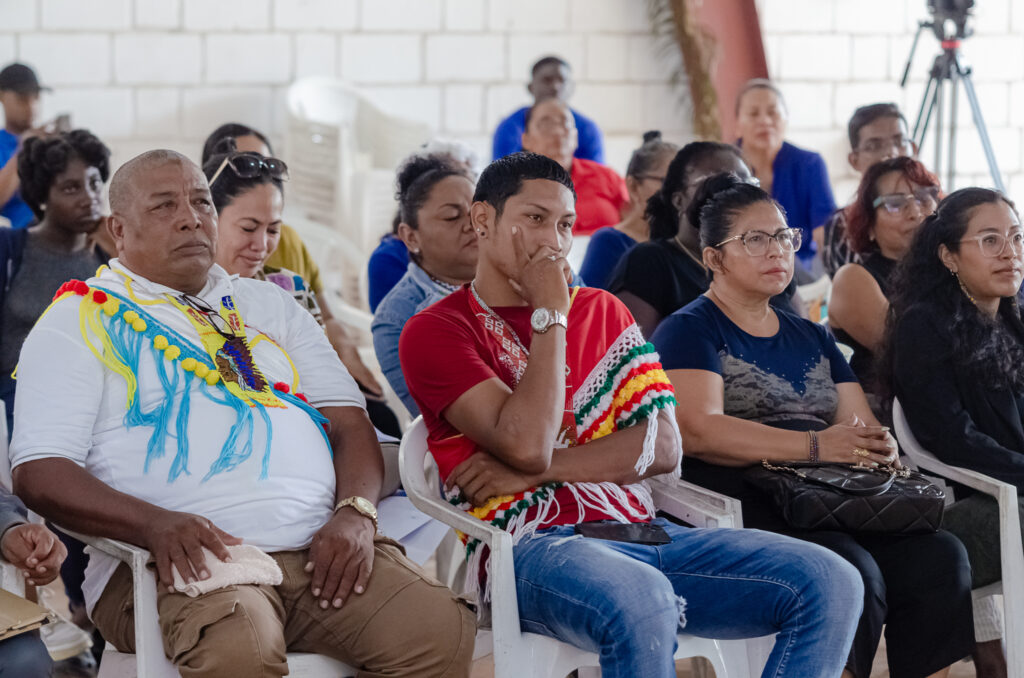
A wider audience
Since its release, the documentary has already reached a national audience. It was broadcast three times on Surinamese television in August 2025 in honour of World Indigenous Day (August 9th).
For those who wish to watch it online, the full documentary is also available on YouTube:
A call for justice
The project achieved its core goal: to give visibility to the struggles and resilience of Indigenous communities. But the work does not end here. The fight for justice, for land rights, cultural survival, and climate equity, continues.
“This is just the beginning,” Sallons emphasised. “Indigenous knowledge holds many of the answers we are searching for. Now, it’s time the world listens.”
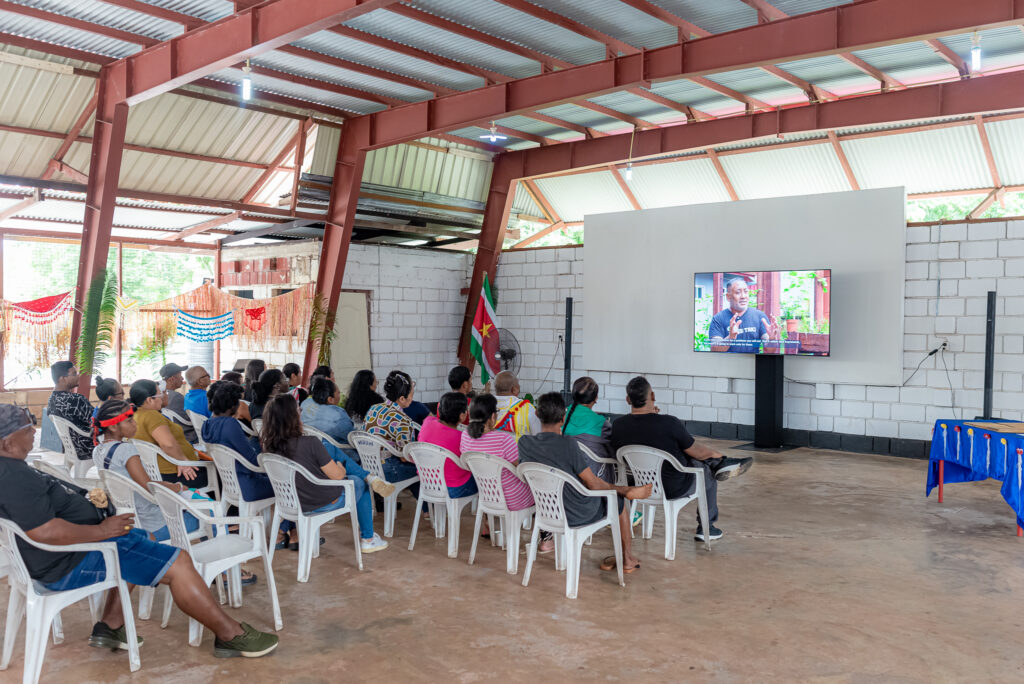
Support and acknowledgements
The project was made possible with funding from Open Society Foundations. Special thanks go to: Pamela Kortram, Christio Wijnhard, Alwin R. Ligorie, Piai Daniel Nelson, Piai Francisco Karwofodi, Lilien Sabajo, Chief Wendeline Sabajo, the village of Matta Korhopa, VIDS, the production and camera team, and all who contributed.
As the documentary makes its way into the public, one message stands clear: the voices of our ancestors must guide us into the future, and justice must prevail.